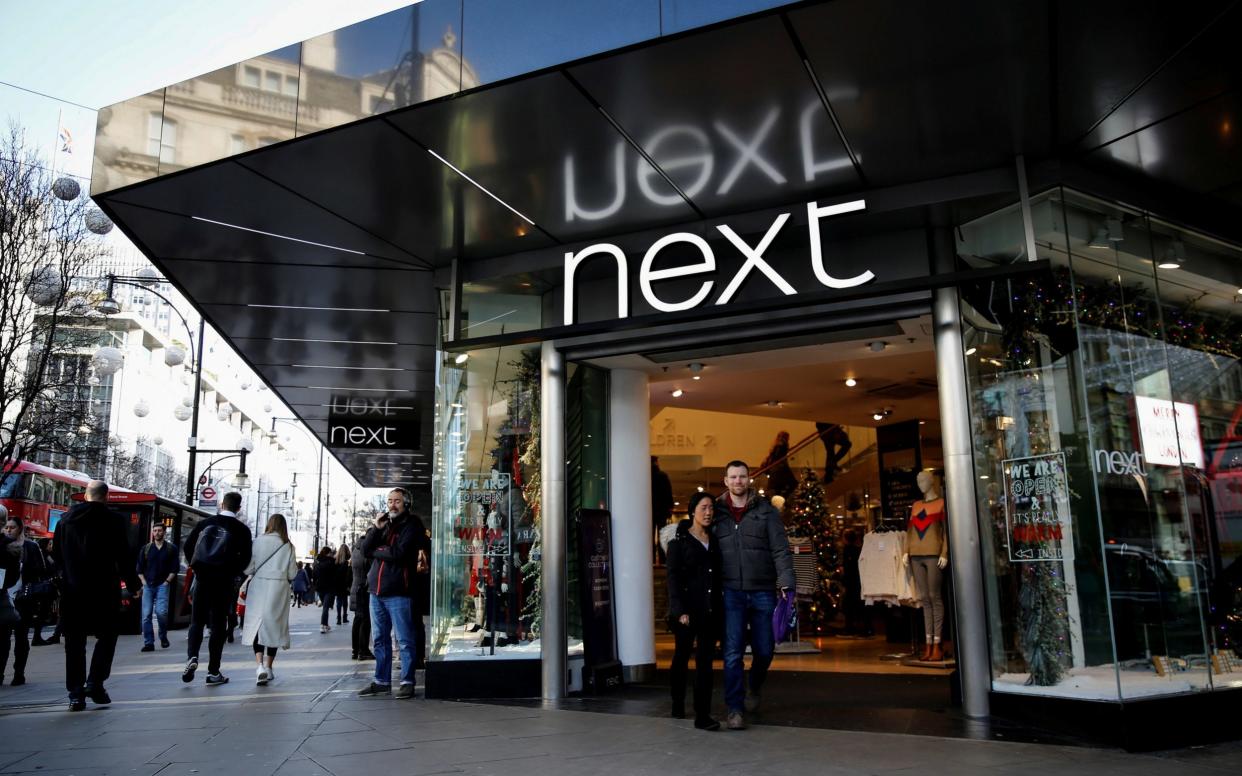Next boss sounds alarm over online sales tax

The boss of Next has attacked plans for a digital sales tax, warning it is a dangerous idea which will further trash the ailing high street.
Simon Wolfson said that an online levy would hammer demand for the click and collect model which has helped revive many retailers' fortunes - ultimately giving consumers yet another reason to shun bricks and mortar shops.
Ministers are reportedly considering an internet sales tax as part of efforts to bolster the public purse and court campaigners demanding action to curb the power of US titans such as Amazon.
But speaking as Next revealed it had suffered a less severe sales slump during lockdown than first feared, Lord Wolfson said the proposals are badly thought through.
He said: “There is a potential for a massive own goal [from the Treasury],” he said. “It could severely reduce the number of people going to the high street if click-and-collect is taxed.”
Next now makes about half its revenue from goods sold through the firm's website or click-and-collect in store. It has proved one of the few traditional retailers able to cope with a dramatic shift online by shoppers.
It was this week reported that the Chancellor is considering two types of online tax: a levy of about 2pc on all goods bought online, expected to raise £2bn a year, and a fee on consumer deliveries that would help to curb traffic and pollution.

Lord Wolfson is not completely against a tax on home deliveries, but said that it would be a mistake to impose one on goods bought via a website and picked up from a shop.
He said that adding a tax burden on companies is not necessarily helpful at this point and the most useful change would be to reform business rates.
Next expects to be profitable this financial year after sales were more robust than anticipated and significantly ahead of its initial doomsday scenarios when the pandemic hit.
Based on the company's new forecasts, it is expecting an annual pre-tax profit of £195m.
The chain said that it could land a £330m profit in a best-case scenario, while at worst it will still end the year £15m in the black.
Shares were more than 6pc higher at £56 in afternoon trading.
The upgrade came after full-price sales fell 28pc for the three months to July 25 – half the 56pc decline which Next forecast in April.
Online purchases rose 9pc for the period as warehouse picking and dispatch capacity returned to normal levels.
Next has taken over lingerie brand Victoria’s Secret in the UK after it fell into administration. It is trying to negotiate cheaper rents to prevent shop closures.
Lord Wolfson said he had no plans for immediate store closures despite consumers continuing to shun its sites in town centres and shopping malls.
Next said: "There is still much that remains uncertain and our central scenario cannot be accorded the same degree of confidence that our guidance would normally receive at this time of year.
"The duration of social distancing rules, post-lockdown consumer behaviour, earnings, unemployment, and, most importantly, whether there will be a second wave lockdown, all remain unknowable. We are now more optimistic about the outlook for the full year than we were at the height of the pandemic."
Full-price sales have almost recovered to last year's levels over the past six weeks as lockdown rules were eased, and are now down just 8pc.
Children's wear, home goods, nightwear and sportswear have been selling much better than its formal attire. Some adult casual clothing has also done well.
Analysts at RBC said that although profits will fall at Next it should benefit from selling homeware, which is popular with shoppers.
They said “Longer term, Next should benefit from a further shift of sales online and from growth in its brands and international sales.”

 Yahoo News
Yahoo News 
